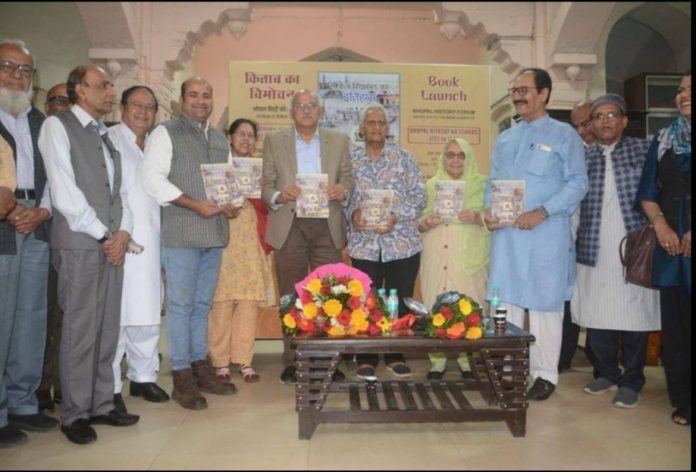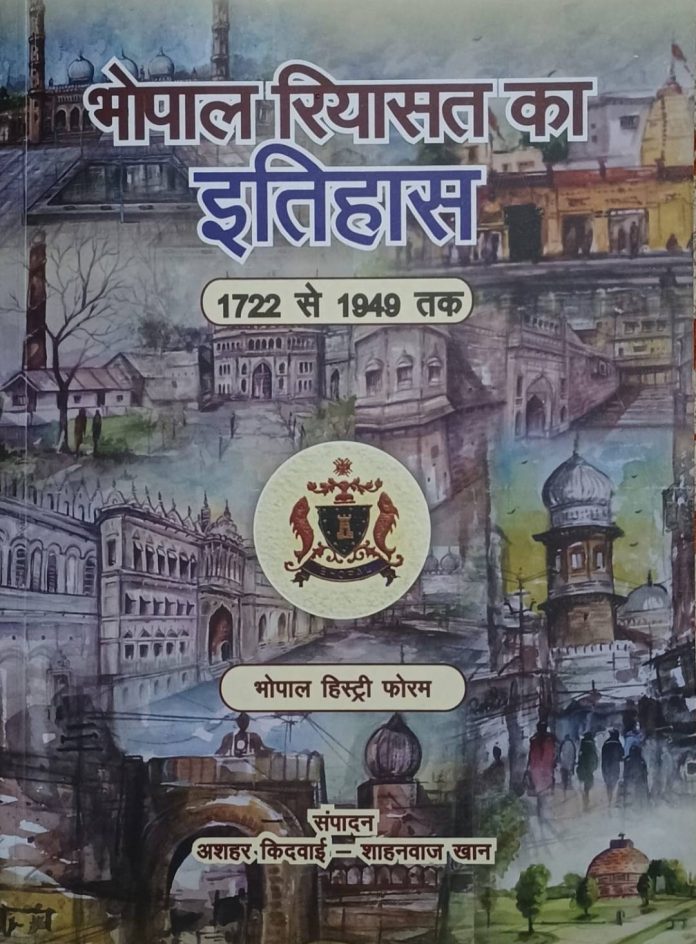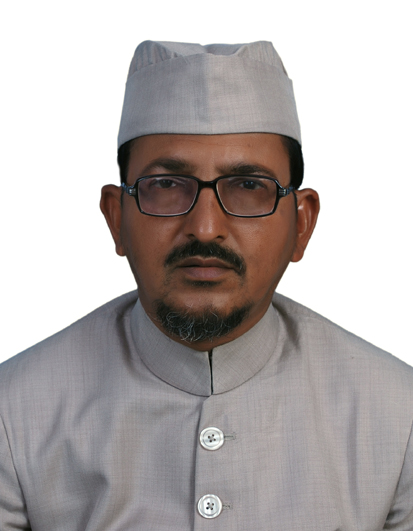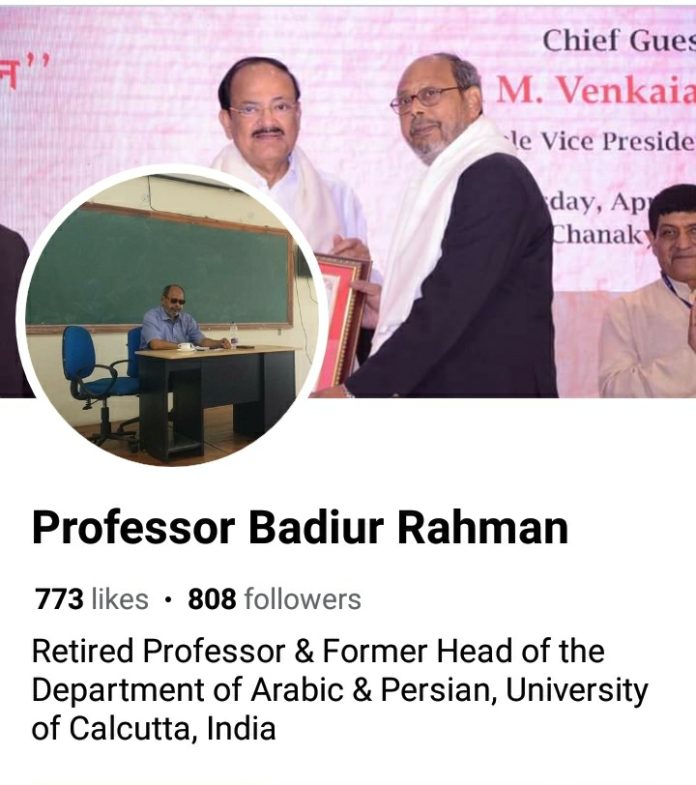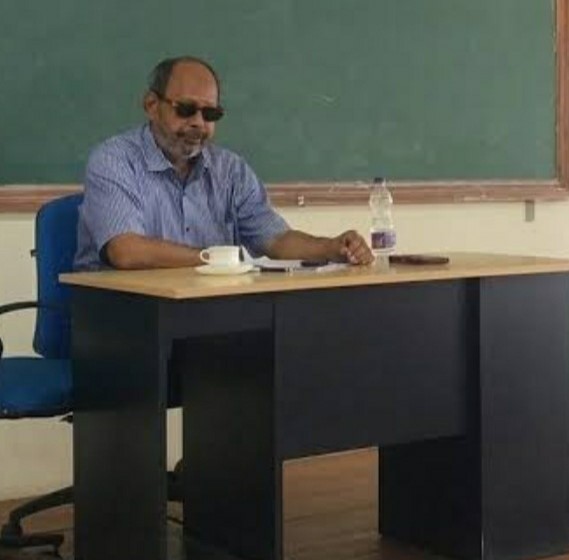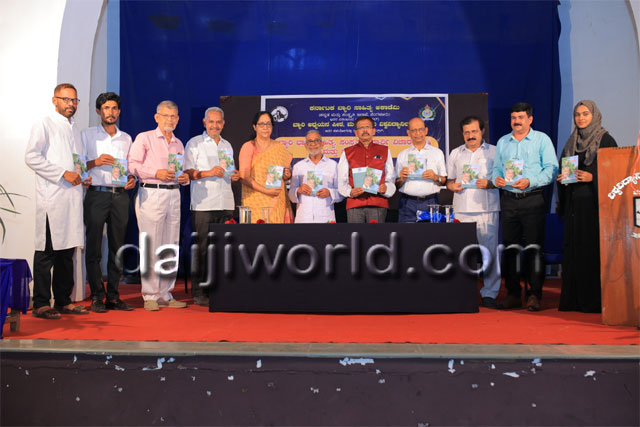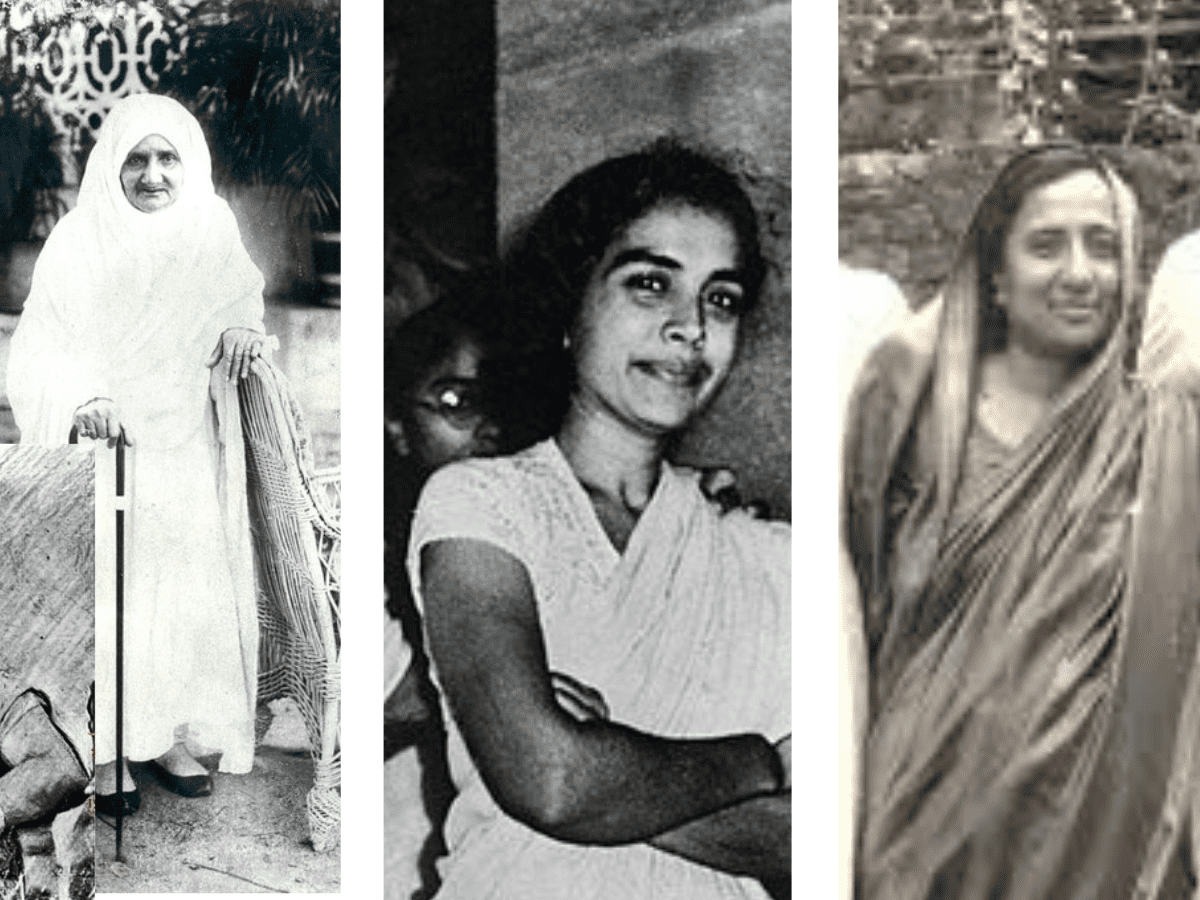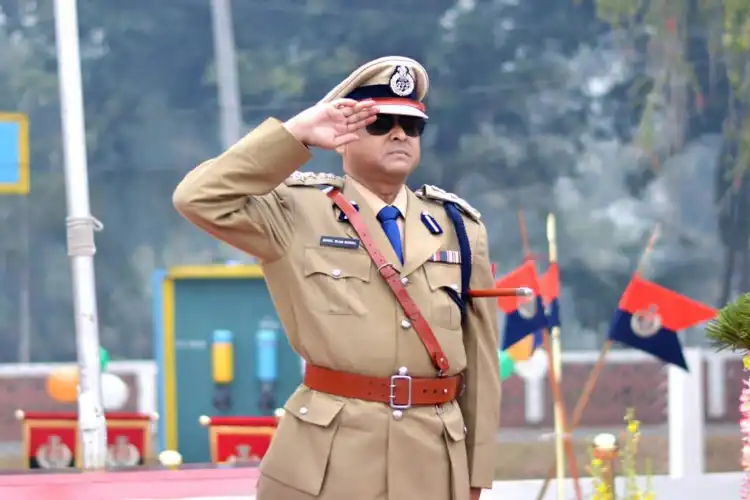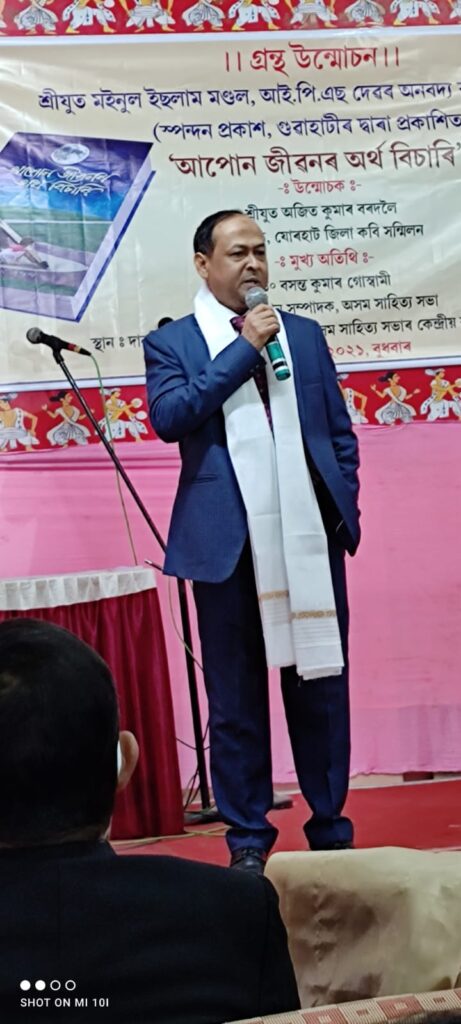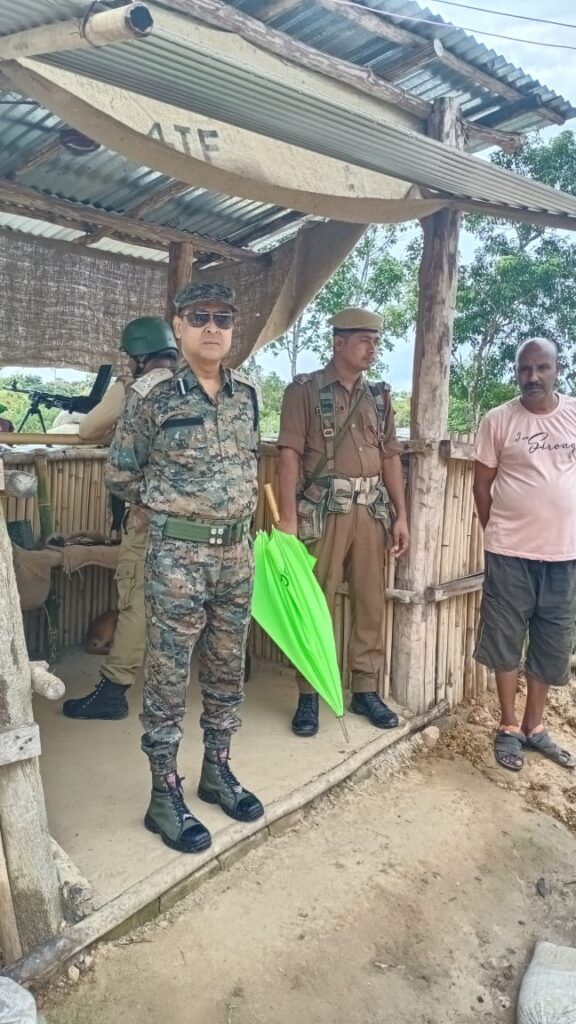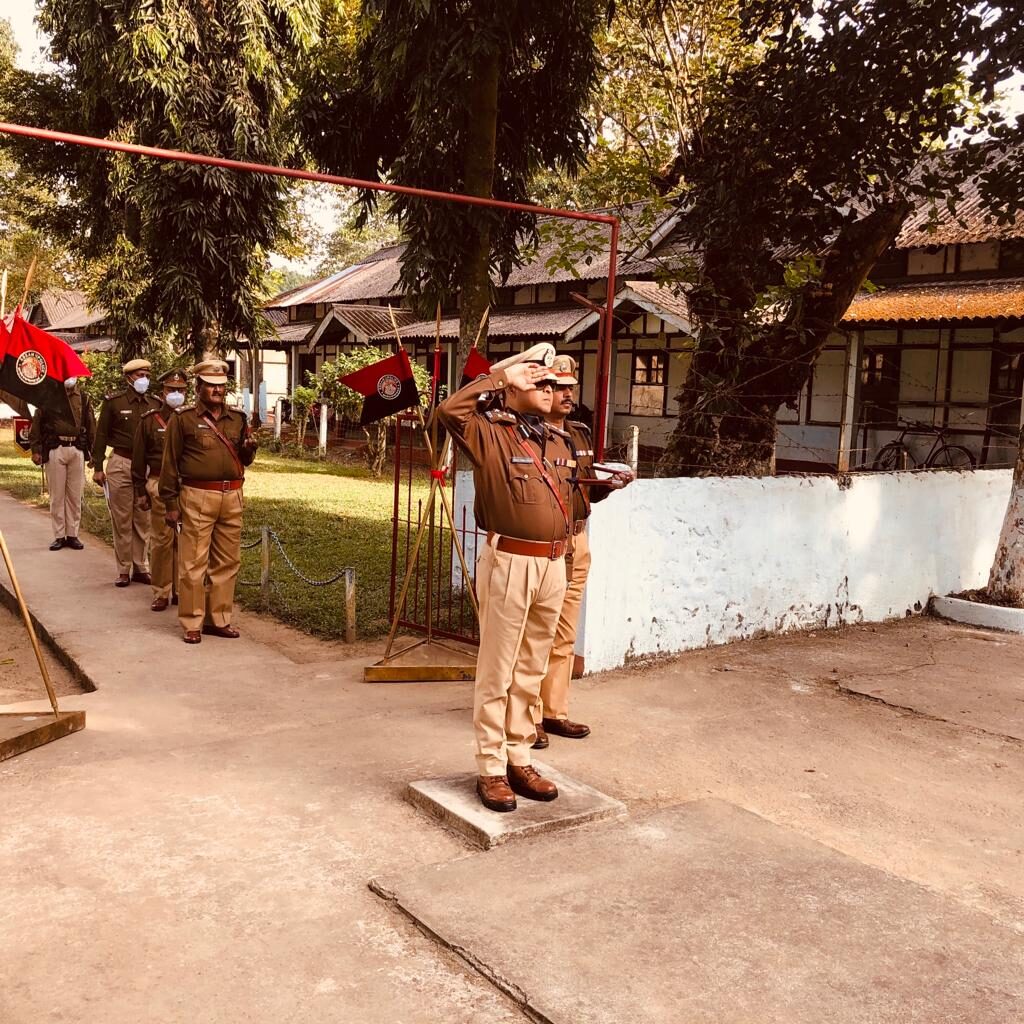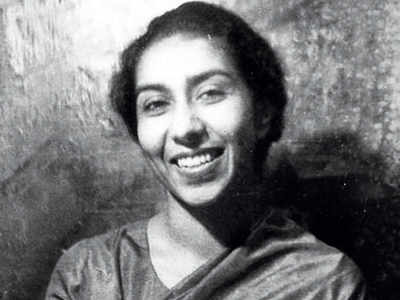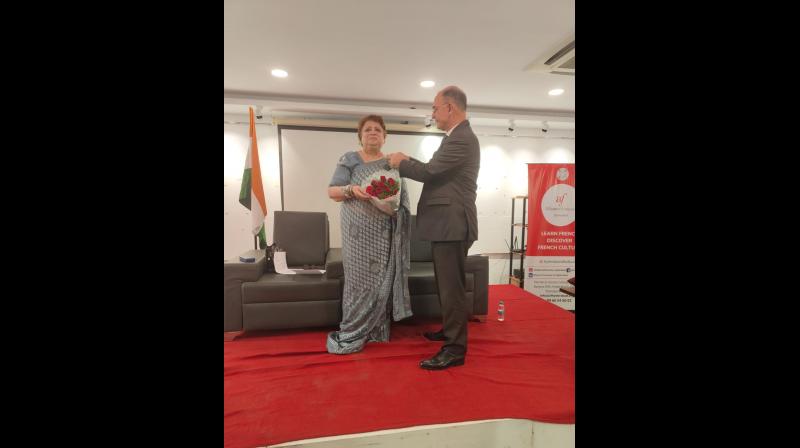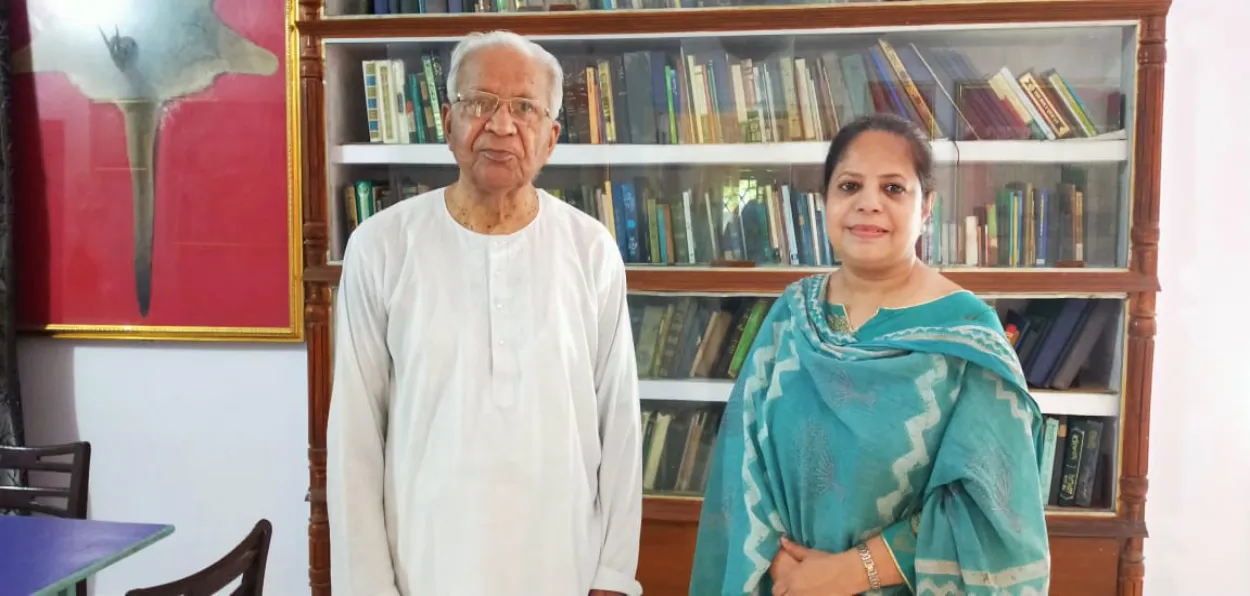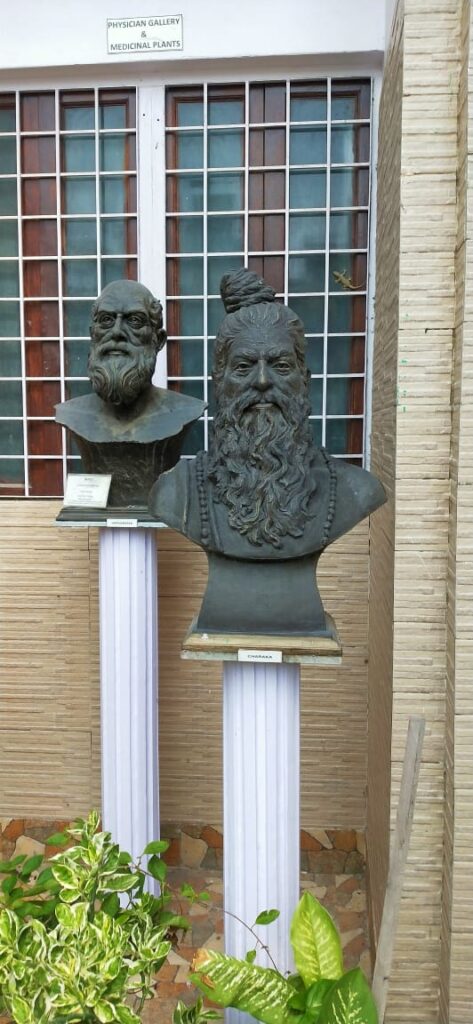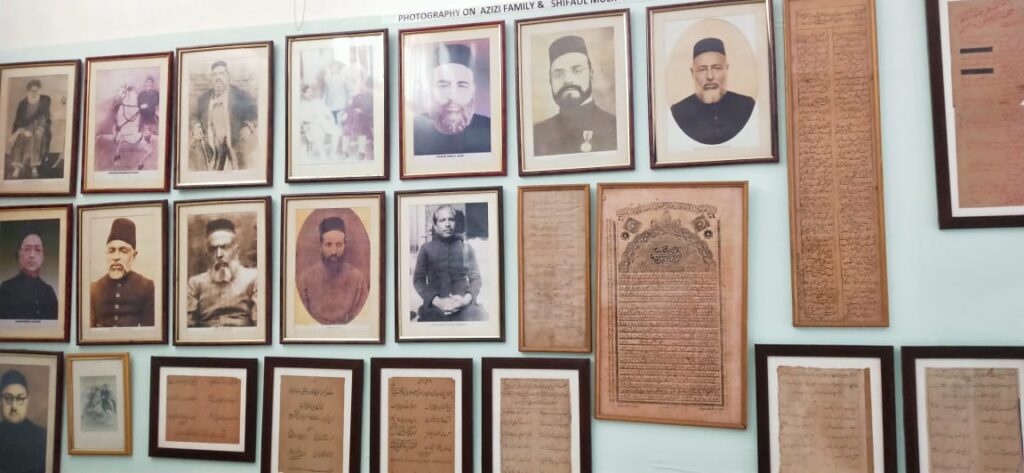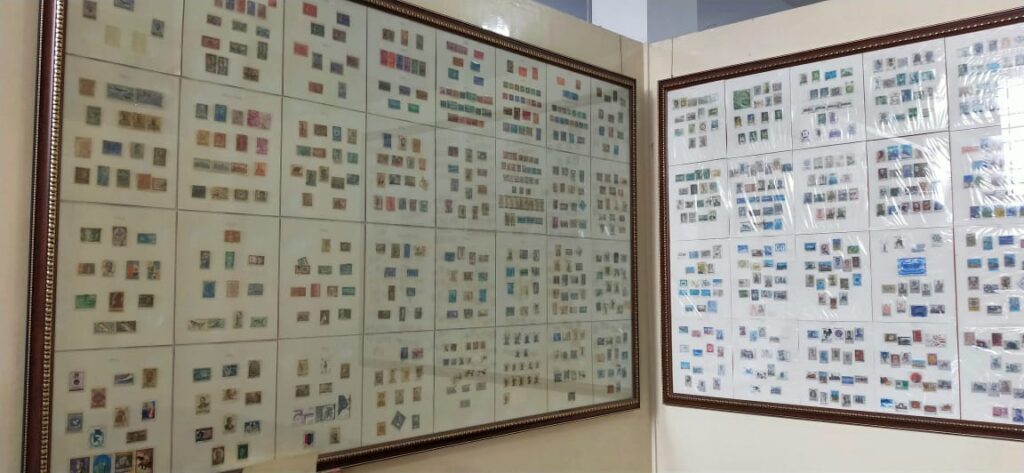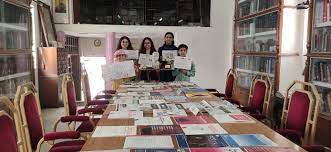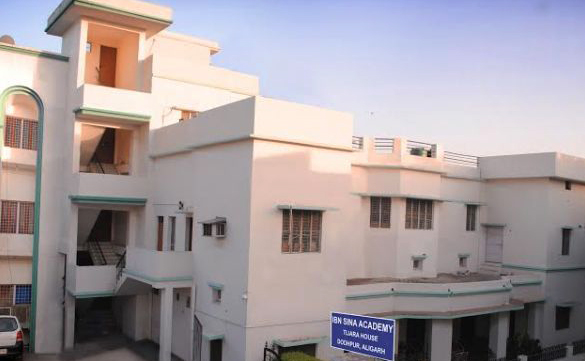Mumbai, MAHARASHTRA:
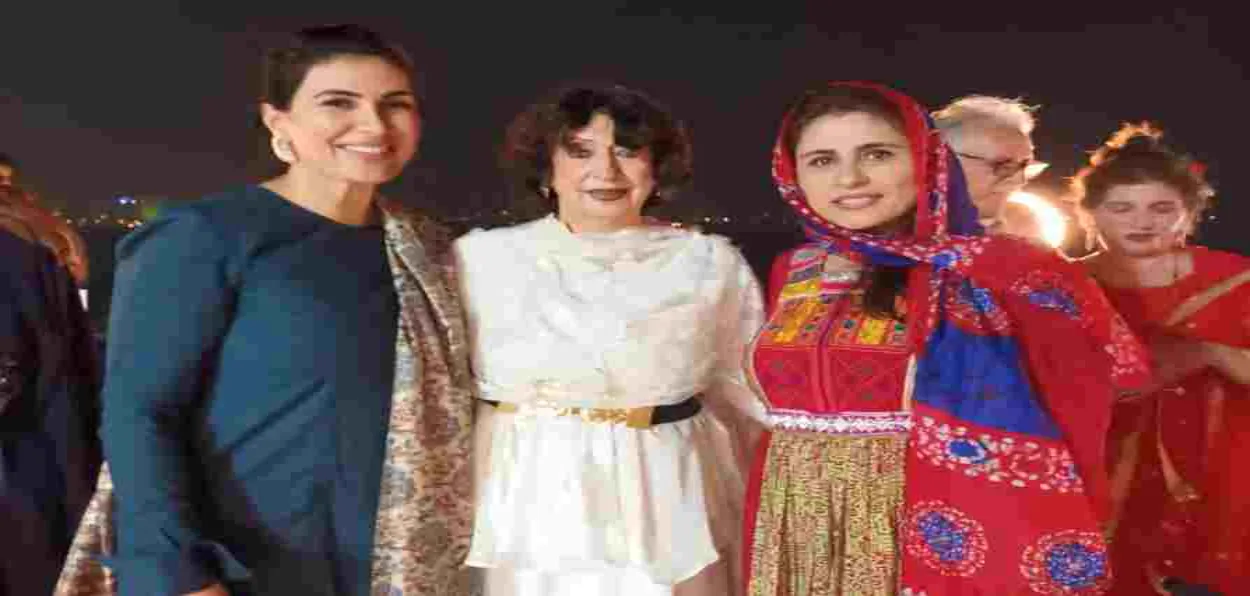
Caught in the panoramic whirl of life, there are thousands of affluent ladies one interacts or brushes shoulders with, but Dr. Zeenat Shaukat Ali shines out amongst many with her warm charming smile, down-to-earth nature, while showering pearls of knowledge. Born in an affluent home in Mumbai, she holds no superficial airs and graces. When someone mentioned to her that she should get the Padma Shri award for her remarkable service, she replied, “My greatest reward is when my students run up to me telling me they never forgot what I taught them in class.”
She told me, “Even you, asking me for an interview is like a reward for my service to the nation.” She said that during her daughter’s birthday party when she was in Dubai, a girl came up to her daughter and asked her, “Are you Zeenat’s daughter? You look just like her”, and when she replied, “Yes’, the girl said, “Let me tell you what she taught me I have never forgotten!”
Dr. Zeenat Shaukat Ali is a former professor of Islamic studies at St. Xavier’s College in Mumbai, fluent in English, and a seasoned speaker during debates on leading television channels and also heads the World Institute of Islamic Studies for Dialogue, Organization of Mediation and Gender Justice. She is clear on her religion: “I follow Prophet Muhammad’s teachings and no sects made by humans, these are all here to divide us.”
On Women’s International Day, speaking to Awaz-the Voice about Indian Muslim women, she said with a sigh of relief, “Indian Muslim women have a stronger and larger voice today than earlier, cutting across all sects and today, we have a long way, hundreds of Muslims contributed to India and I think all-around whole education is the answer to all problems. Women should be given a key role in the decision-making process, and be able to implement laws for the nation.
There are 33% seats for women in parliament. Ilm in Arabic means knowledge and there are 800 plus verses upholding ilm or knowledge and it’s derivatives. There are hundreds of verses in the Quran elucidating scientific facts. In Indian society, we see that the Parsees are highly educated and have become the best doctors, and lawyers, excelling in all spheres because they proficiently educated themselves.
“We are no longer the India of a hundred years back. With education, we can get rid of misogyny, and inequality, giving equal respect and equal understanding to each other. On a flight back to Mumbai, I watched Sri Devi’s excellent movie, English Vinglish and one line that stood out was the aspect of respect where she said, “Teach me, don’t make fun of me, and don’t take it for granted that I will only sit in the kitchen and make ladoos …”
Dr. Zeenat Shaukat Ali on reminiscing about her early life said, “My interest in studying the Quran began early, around the age of 16 when I was trying to understand a paragraph (ruku) a day in depth to try and comprehend its meaning, and very often, I would be the only girl sitting among all the wise spiritual white-haired Maulanas some even in their 80s, learning from them. With their help, I began to understand the message of compassion, peace, and harmony. My prayers also began at that age and continue to date.
At a young age, she looked up to her excellent teachers who were like father figures and sculptured her thinking to analyze as she went into research. “Dr NS Gorekar was my teacher of Islamic Studies and my Ph.D guide and Professor Kamran taught me how when one goes deep into relics, where the finishing steps are like jewelled stones and thesis is like a manuscript which should never be discussed with anyone or they would steal your thoughts!”
Her childhood home was always buzzing with activity, guests filling the home with visitations, while house helpers hurried around in their daily tasks. Lunchtimes were blissfully wonderful for Zeenat Ali when her father’s friends visited, Dr. Shukri and Maulana Abdul Rahman who were both very knowledgeable and the young Zeenat could pour out all her questions quenching her thirst for deeper spiritual understanding. Her spare time was immersed in activities visiting the club and libraries. Her favourite sports were badminton and horse riding and a day was never too long for her and she spent more time in libraries than in clubs, though!
Fortune smiled on her with her happy family life, with one brother and being the only daughter always felt the warm arms of her parents embrace her equally. In this close-knit family, they shared everything and were like the best of friends. “There was a gender parity in our household,” she says. While her brother went on to study engineering and business management, she went on to study English Literature and delve deeper into Islamic Studies. Both parents, Gulam Ali and Sheereen were advocates of intellectual secularism. Traditionally, every Friday, her father gave the queues of poor people outside their homes a delicious meal. Good works were an integral part of her family’s faith and her great-grandfather and his dear brother opened an orphanage in Pune giving solace to hundreds of children. She also received personal care from her grandmother as she was growing up.
Her mother was anxious to see her well settled in marriage at a young age, but her father and grandmother opposed an early marriage wanting her to only get married after her education. When the day of a suitor arrived, her future husband Shaukat Ali was informed that he could only marry her if he allowed her to complete her graduation, to which he readily agreed and in fact, encouraged her to pursue her higher gradution after marriage in the 1980s.
While her mother was a great source of inspiration, it was her father, Zeenat Shaukat Ali says, who stood as a powerful influence in her life, always urging her to study more, taking a keen interest in her subjects, and asking her questions about the subjects in her class, discuss enriching topics with her and always spurred her on for higher graduation. Her taught her the concept of humanity drawing her into the world of all people as one, where he had friends from all religions, Hindus, Parsees, Sikhs, Christians, Jains, Buddhists, and others and he looked at all people as humanity.
She grew up with Muslim cooks crafting delicacies who skillfully knew the art of laying out an elaborate meal on a dining table, Hindu and Christian domestic workers and maids rich in their traditions and beliefs and all were respected. She specially mentions Abdul the cook who made her beloved cheese sandwiches with hot tea, so she could concentrate on her work without interruptions.
The school was all about sharing tiffins as constantly hungry students generously shared each other’s lunch boxes. “Those were happy days in St Xavier with long animated discussions in the college canteen and festival seasons were times of sharing and visiting Hindus, Christians, Jains, Muslims, Parsees, and others alike.”
When she got married, her Christian maid, Rosy Fernandez helped to bring up her three children amidst her very hectic schedule. Rosy had her method of praying as did the other house helpers and she says, “We learned the art of humanity.”
Her husband and three children (two daughters and a son) used to tell her that her quest for knowledge was insatiable and likened it to taking a “deep dive into the ocean to touch the ocean floor,” meaning, she always had to dig deeper and was never satisfied with just bright glimmers of knowledge and also went to the roots of William Shakespeare’s literature, which in themselves were always complicated. Her husband, Shaukat Ali was a remarkable sportsman, a great businessman, and a wood connoisseur who at parties would often delve into a rich conversation on any type of furniture wood, being an interior designer, he was artistic and loved flowers, music, and took a profound interest in Zeenat’s writing, even though at times, he fell asleep in the middle of it, she says with a laugh. When her father suddenly died of a heart attack, it was a shock to her and Dr. Zeenat found her comfort in the pristine purity of the Quran she grew up with.
She said, “After the sudden loss of my Father, it was my husband who said I should take up my PhD seriously instead of dropping tears.” With eyes filled with tears and a choked voice, she said that her husband and her mother both passed away in 2018 and it was a particularly difficult time for her.
She says, “I matured bit by bit as I was doing my thesis until I realized the ideas and values of Islam had to be brought out as there was an alarming deafening silence from our scholars, very disappointing as they also have a responsibility to bring the right representation of Islam to the nation.”
Her husband and three children (two daughters and a son) used to tell her that her quest for knowledge was insatiable and likened it to taking a “deep dive into the ocean to touch the ocean floor,” meaning, she always had to dig deeper and was never satisfied with just bright glimmers of knowledge and also went to the roots of William Shakespeare’s literature, which in themselves were always complicated. Her husband, Shaukat Ali was a remarkable sportsman, a great businessman, and a wood connoisseur who would often in parties delve into a rich conversation on any type of furniture wood, being an interior designer, he was artistic and loved flowers, music, and took a profound interest in Zeenat’s writing, even though at times, he fell asleep in the middle of it, she says with a laugh. When her father suddenly died of a heart attack, it was a shock to her and Dr. Zeenat found her comfort in the pristine purity of the Quran she grew up with.
She said, “After the sudden loss of my Father, it was my husband who said I should take up my PhD seriously instead of dropping tears.” With eyes filled with tears and a choked voice, she said that her husband and her mother both passed away in 2018 and it was a particularly difficult time for her.
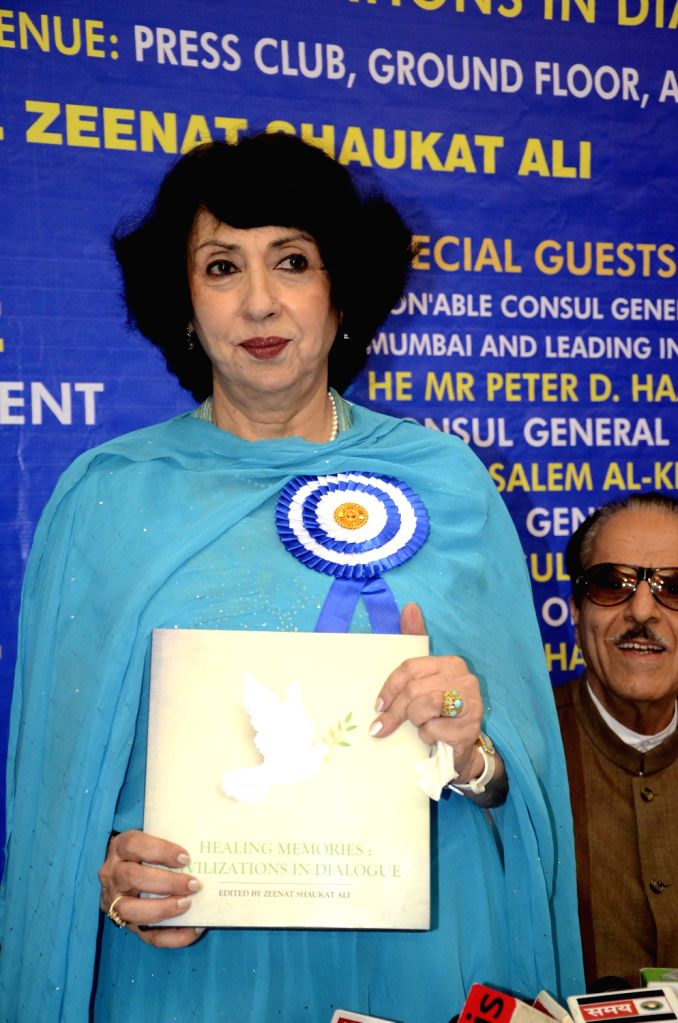
She says, “I matured bit by bit as I was doing my thesis until I realized the ideas and values of Islam had to be brought out as there was an alarming deafening silence from our scholars, very disappointing as they also have a responsibility to bring the right representation of Islam to the nation.”
A recent book entitled “I Am ?” a Hinduja Foundation Publication brought out by Mr. Gopichand Hinduja and Mr. Ashok Hinduja is the result of Mr. Gopichand Hinduja’s inspiration. In the Introduction of “Why this Book ?” Mr Gopichand Hinduja, a great spiritualist states that he wanted an “l state to bring all virtuous teachings of all the important religions of the world that have influenced and shaped humanity in a single book to share their oneness.”
A Par Excellence Message has been penned by Sheikh Al Nahyan, Minister of Tolerance and Coexistence, UAE as Dedication to Humanity” where the message of the book is “dedicated to those who want to explore their life beyond the known and visible,” she said,” It was an honour for me when I was invited to write the conclusion to the book. It was to be on the commonalities existing among religions. I titled the chapter “Connecting the Magical Dots in the Infinite Cosmos” where I wrote, “We are all like a beautiful rainbow, where all colours stand together yet remain distinct to form the exquisite rainbow. We say similar things at different times, in different languages but have to stand together to form the rainbow. Our commonness lies in our humanity, to be compassionate, to care for each other.” She added, “A Chart of the Commonalities has been drawn up and affixed at the end of the book.”
Achieving powerful landmarks, invited all over the world as a delegate, she is an integral part of many organizations. She is the Founder and Director-General, of Wisdom Foundation, founded in 2006 in Mumbai, a registered body that has many national and international advisors which focus on Gandhian values of nonviolence, and humanitarian service.
She bagged the Vijaya Shree National Award for Education Enriching Human Life and Outstanding Attainment in 1997-98. She spearheads an innovative peace initiative in the city. With over three years of existence, the program features a cricket match at the Brabourne Stadium, involving teams comprised of Muslim, Hindu, and Christian clerics, deliberately not segregated along religious lines. Additionally, Ali leads the World Institute of Islamic Studies for Dialogue, Organization of Mediation, and Gender Justice. She actively participated in the International Higher Education Interfaith Leadership Forum.
She has attended very important, excellent Conferences in Doha, Qatar organized by the Ministry of Foreign Affairs on Interfaith Dialogue in 1922 and 23 where interfaith scholars and dignitaries around the world were invited. In 2022, she attended an Excellent International Conference in Azerbaijan on Dialogue and Preservation of Cultural Sites.
Also known as an activist and author of several books, she has made a powerful impact with her writings. Her famous book The Empowerment of Women in Islam With Special Reference to Marriage & Divorce, was highly felicitated by great leaders in India.
Justice A. M. Ahmadi, Chief Justice Supreme Court of India said, “The author in her book seeks to knock on the doors of Islamic Jurisprudence to secure gender justice for Muslim Women. It is path-breaking in the sense that it is a bold endeavour to show how social reform can be introduced into the Muslim society through traditional strategies…”
Achieving powerful landmarks, invited all over the world as a delegate, she is an integral part of many organizations. She is the Founder and Director-General, of Wisdom Foundation, founded in 2006 in Mumbai, a registered body that has many national and international advisors which focus on Gandhian values of nonviolence, and humanitarian service.
She bagged the Vijaya Shree National Award for Education Enriching Human Life and Outstanding Attainment in 1997-98. She spearheads an innovative peace initiative in the city. With over three years of existence, the program features a cricket match at the Brabourne Stadium, involving teams comprised of Muslim, Hindu, and Christian clerics, deliberately not segregated along religious lines. Additionally, Ali leads the World Institute of Islamic Studies for Dialogue, Organization of Mediation, and Gender Justice. She actively participated in the International Higher Education Interfaith Leadership Forum.
She has attended very important, excellent Conferences in Doha, Qatar organized by the Ministry of Foreign Affairs on Interfaith Dialogue in 1922 and 23 where interfaith scholars and dignitaries around the world were invited. In 2022, she attended an Excellent International Conference in Azerbaijan on Dialogue and Preservation of Cultural Sites.
Also known as an activist and author of several books, she has made a powerful impact with her writings. Her famous book The Empowerment of Women in Islam With Special Reference to Marriage & Divorce, was highly felicitated by great leaders in India. Justice A. M. Ahmadi, Chief Justice Supreme Court of India said, “The author in her book seeks to knock on the doors of Islamic Jurisprudence to secure gender justice for Muslim Women. It is path-breaking in the sense that it is a bold endeavour to show how social reform can be introduced into the Muslim society through traditional strategies…”
M Hidayatullah, Former Chief Justice and Vice President of India said, “This is a treatise of Marriage and Divorce in Islam…written in a scholarly way, it will keep these difficult subjects alive for lawyers, teachers, and students. I wholeheartedly recommend the book.”
The Implementation of a Uniform Civil Code, Winning the Peace: A Quest/edited by Dr. Zeenat Shaukat Ali, contributor Shaukat Ali. She wrote Healing Memories – Civilizations in Dialogue; The Legacy of India – Pluralism, Tolerance and Peaceful Coexistence, and many other erudite thesis papers.
Among her cherished mentors are Father Simon D’ Souza who had been teaching at St. Xaviers College Mumbai and serving as in-charge Principal for a while, and Raymond Bodin from UNESCO, among many others. She also says, “I pray to Allah with my hands folded.”
She explained that the phrase Vasudhaiva Kutumbakam from Hinduism which means “The World Is One Family” is similar to the words of Prophet Muhammad who said” All creatures form the family of God and he is best loved by God who best loves his creatures”.
Jesus taught similar ideologies to love all people, as did Buddha and other religions. Unfortunately, religion over time has been manipulated for political gains. Islam means peace comes from Salam.
She expressed, “One of the people who were dear to me was Father John Misquitta SJ, Principal of St Xavier’s when I began to teach, who loved my thesis. He was dynamic, encouraging he believed in academic excellence like all other principals. Fr John Correia-Afonso, Director of the Heras Institute of Indian History and Culture, St Xaviers College was a distinguished renowned historian who invited me to join the Heras Institute. He was an exceptional person – a legend who guided many a student. He was a great instructor and teacher who inspired many academicians, including me.”
“The whole world of Islam where Muslim majorities prevail are now re-thinking issues so it’s time for us now that our Ulema, our learned, our scholars should not drown themselves in silence or should not give misleading misinformation, where Islam is teaching you to preserve life. If you kill one person, it is as if you have killed all mankind Surah 5:33, so we have to bring these to life not only in words but in our actions…”
Reiterating that learning and knowledge were an essential part of their lives as Islam teaches “Whoever follows a path to seek knowledge, Allah will make the path to Jannah (Paradise) easy for them.’ it was incredible that her grandmother at the age of 70 was learning to read and write Urdu,” Zeenat Ali said that similar to her male counterpart, every woman is morally and religiously obligated to pursue knowledge, enhance her intellect, broaden her perspective, nurture her talents, and subsequently utilize her potential for the betterment of both her soul and her society.
She shares special nuggets of gold with Indian Muslim women today, and on Women’s International Day, with this message, “Have a wonderful vision for your country and your family. Educate yourself to the fullest, endeavour to be the best in the world, and be part of nation-building. Be compassionate and caring. Dream big! Know that you are beautiful in the heart and the soul, you are an achiever, you are a doer, you can do it and you will make a difference!”
Rita Farhat Mukand is an independent writer
source: http://www.awazthevoice.in / Awaz, The Voice / Home> Stories / by Rita Farhat Mukund / March 08th, 2024
